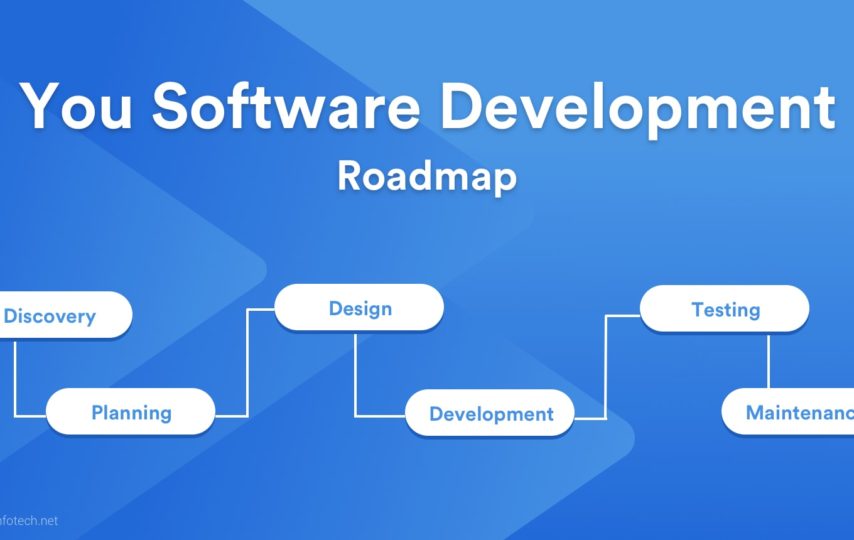Today’s globalised economy faces many challenges that previous generations couldn’t even imagine. Digital transformation of entire departments, securing Covid-safe working environment, managing remote teams while keeping your business afloat, and the list goes on and on. While only a decade ago, software development outsourcing was a privilege of big and mighty corporations, nowadays it is a preferred approach of businesses that have discovered its numerous benefits.
Working in a bespoke software development company with experience in economic pillars such as banking, healthcare and transportation, I see that our partners rely on technical expertise not only to survive the pandemic challenges but also to future-proof their core processes. This is because so many vital sectors of our everyday life currently undergoing digital disruption, and if the innovation pace keeps up, we’ll live in a fully digitalised society sooner than expected.
- When to Consider Software Development Outsourcing
Whenever your company develops a new business project, there are three obvious choices to approach it: in-house software development, full project outsourcing to a single vendor or a mix of both, collaborative efforts of distributed teams. The first approach is only feasible if you have abundant financial resources and a technical workforce, which is less common with today’s uncertain business landscape. The second two options are increasingly popular as the most significant advantage of software development outsourcing is cost-efficiency. To hire a pimcore developer company, check here.
- It Reduces Your Project Expenses
It is no secret that outsourcing helps you save tons of valuable resources. In fact, it is one of the main reasons why some companies, small or big, choose to outsource their development processes. If you want a successful software product, you can either enforce your in-house IT talents or outsource these services to skilled professionals. The first option is more expensive due to salaries, insurance, social benefits for the employees, etc., and only a handful of non-tech companies can afford senior software developers because of this. Instead, with outsourcing vendors, you get to choose from flexible contracts, with the two most popular being the fixed price and T&M (time & materials) models.
- No Need To Micromanage Teams
High costs can become an issue when you choose inexperienced service providers or a pricey country region. To avoid these, companies often rely on teams with established processes and project management practices. Such vendors can assess your technical needs, record your project metrics, process them and plan how all your software development requirements align with the long-term business goals. Although you can, there is usually no need to micromanage the technical team responsible for the project if they have a working methodology to follow, e.g. Scrum or Kanban. These include frequent meetings with the business stakeholders with reports on project status, tasks or bottlenecks that impede progress.
- Accelerated Time-to-Market
In the business arena, time is always of the essence. That’s why you want to accelerate your project’s time-to-market (TTM) whenever you can. Agile software development has surged in popularity among vendors as it utilises flexible step-by-step processes as part of a product development lifecycle. Practices like Kanban and official guides like Scrum use iterations, visual boards and pipelines to optimise the entire development process. Moreover, agile methodologies offer additional benefits such as increased transparency and boosted development speed that directly impacts TTM and your business performance.
- Concentrate on Your Core Business
This is a decisive factor if you are a small or medium-sized enterprise (SME) with scarce and insufficient resources to meet internal IT needs while maintaining high-quality customer support. Delegating entire software projects (e.g. an MVP) or specific components (e.g. architecture design) to an outsourcing provider enables your company to focus on its core activities. But suppose an external company fails to organise the management and cooperation in a project effectively. In that case, it can result in your company continuously monitoring the execution of outsourced tasks, which is the opposite of efficiency. Thus, the third point of this list is so vital (see above).
- Gain Access to the Newest Technologies
In our digitalised world, everything revolves around technologies, but if your core business area has little to do with IT, there is little chance you are an expert on the hottest tech trends. For instance, if your company specialises in healthcare or banking, your best bet in today’s competitive business environment is to focus on your core competencies. Plus, by outsourcing to seasoned experts in a specific field, you will have access to the latest technology trends required to develop your product or software. While looking for your next tech partners, take their previous domain experience into account and opt for companies specialising in your particular field.
- Lower Risk of Service Outages
IT service continuity management (ITSCM) is a broad topic as it encompasses lots of business aspects such as service delivery, prevention of outages and downtimes, all aligned in a way to secure business continuity and service availability. Just a simple example might help you imagine the potential scope of issues if ITSCM isn’t handled properly. Let’s take the automotive sector: car distributors process their deals with software tools, right?. If a sales rep encounters a system bug or failure, he/she won’t be able to close a deal and will therefore lose a potential client. Outsourcing your IT mitigates the risk of system failure considerably, as you have access to several backup servers. Besides business continuity, experienced managed service providers also have disaster recovery and business continuity measures to ensure you don’t lose any revenue.
- Outsourcing as a Growth Strategy
Growth-oriented companies benefit disproportionately from IT outsourcing due to dynamic and requirements and ever-changing business processes. For example, business risks through loss of know-how, when employees leave the company, time-consuming recruitment and training processes can also be effectively avoided if you have a reliable tech outsourcing partner on your side. However, one of the key reasons of working with outsourcing partners remains their deep technical expertise, which can be a powerful asset as your company grows and needs to scale.
- You can Scale Your Project Faster
So, your project took off and is a huge success and now you need to scale it in an efficient manner that actually supports sustainable business development. Now is the right time to consult your software development vendor as the dev team will be in the position to give you the best possible advice on how to scale your technical systems properly and accommodate them to the greater business load (e.g. purchases, inquiries, processes).
- The Power of Multisourcing
When we refer to multisourcing, we mean the distribution of services to several (multiple) suppliers, independence appears primarily as a strategic advantage. If the customer can choose between several providers and, for example, flexibly distribute services between suppliers, the choice results in commercial and qualitative benefits. This approach also diversifies potential time-zone-related risks. Outsourcing your project development to many teams in different locations makes sure you’ll always have someone working on your project somewhere around the world and around the clock.
Author Biography Aleksandrina Vasileva
Aleksandrina is a Content Creator at Dreamix, a custom software development company, and is keen оn innovative technological solutions with a positive impact on our world. Her teaching background, mixed with interests in psychology, drives her to share knowledge. She is an avid reader and an enthusiastic blogger, always looking for the next inspiration.













